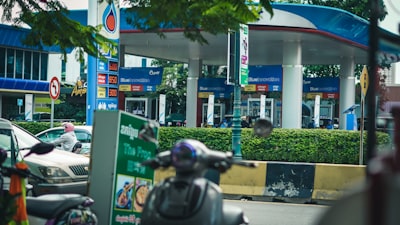Overview
Fuel subsidies are a significant aspect of Malaysia's economic and social policy, especially concerning petrol (gasoline) and diesel. Designed to keep domestic fuel prices affordable, these subsidies have played a key role in the nation's cost-of-living landscape, government fiscal planning, and political discourse.
Historical Background
Malaysia, as a net oil exporter, began implementing fuel subsidies in the 1980s as part of broader measures to support household incomes and stabilize prices. Over the decades, the government expanded subsidies to encompass various grades of petrol, as well as diesel, providing a crucial mechanism for limiting inflation and supporting both consumers and small businesses.
Rationale for Subsidies
The primary objective of fuel subsidies has been to protect citizens from volatile global energy prices, increase disposable income, and safeguard economic growth. Subsidized fuel also contributes to keeping public transportation and goods delivery costs manageable, thus indirectly holding down prices for everyday essentials.
Fiscal Implications
Fuel subsidies have consistently constituted a major portion of Malaysia's annual budget. By 2023, the total subsidy bill neared RM80 billion (Malaysian ringgit), with approximately half allocated to fuel support. While beneficial for consumers, this level of expenditure has prompted concerns over fiscal sustainability, especially amid fluctuating global oil prices and competing budgetary needs such as infrastructure, healthcare, and education.
Reform Efforts
Malaysian governments have periodically attempted to reform the subsidy system, aiming to target benefits more effectively or to reduce state expenditure. Efforts include measures to:
- Gradually reduce or remove blanket subsidies
- Transition to targeted subsidies aimed at lower-income groups
- Deploy digital solutions and direct cash transfers to eligible recipients These reforms are designed to make public spending more efficient and free up resources for other national priorities, while mitigating potential short-term impacts on vulnerable populations.
Economic and Social Impact
The removal or restructuring of fuel subsidies, particularly for widely used grades like RON95 petrol, affects diverse sectors:
- Consumer Prices: Fuel price increases can drive up the cost of transportation and goods, contributing to inflation.
- Household Budgets: Lower- and middle-income groups are especially sensitive to fuel price changes, impacting their cost of living.
- Small Businesses: Many small enterprises, including food vendors and delivery services, face higher operating costs.
Political Significance
Subsidy reforms are politically sensitive due to their widespread impact and the potential for public backlash. Fuel price increases have, in the past, led to protests and affected electoral outcomes, making the issue a recurring feature in Malaysian politics.
Future Outlook
Moving towards a more targeted subsidy scheme aligns with international recommendations for fiscal responsibility and efficiency. However, the success of such policies depends on transparent implementation, effective communication, and adequate social safety nets to cushion the effects on vulnerable demographics.

Comments
No comments yet. Be the first to comment!